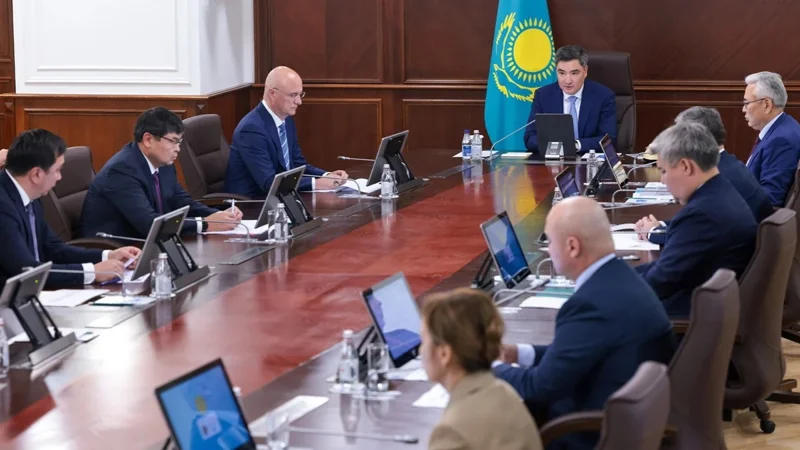Kazakhstan set to reconstruct nearly 4,000 km of roads by 2030
Prime Minister Olzhas Bektenov of Kazakhstan chaired a government meeting with road quality enhancement in focus on Friday, Kazinform News Agency cites the Kazakh Government.

The meeting highlighted Kazakhstan’s road network stretches 185,000 km in total, including 25,000 km of national highways, 70,000 km of regional roads and 90,000 km of local streets.
In his report focused on ongoing efforts to increase the quality of roads, Deputy Transport Minister Maksat Kaliakparov said that in 2025 alone, work is planned across 13,000 km of roads. “Of these, it’s planned to reconstruct 2,000 km of national highways, repair 6,600 km of roads between regional centers, and 4,100 km of local roads. It’s expected that 94% of national highways and 91% of local roads are to be brought up to standard”.
Officials said a number of legislative changes were put in place, including a ban on commissioning projects before addressing quality concerns and mandatory expert reviews of medium-scale repairs.
Since early 2025, there has been a 2% reduction in poor-quality materials and construction defects, as well as a 14% increase in transformation of local gravel roads into asphalt roads.
“Design optimization efforts have allowed to save up to 1 billion tenge, and assessment is carried out on half of the local roads”.
Arman Alibayev, president of QazJolGZI, the country’s road research institute, briefed about the implementation of digital technologies in the road sector.
Over the past five years, the institute has carried out more than 20 research projects aimed at improving road construction and repair technologies. Several digital initiatives are currently being implemented across the country. To enhance design quality, a unified database of road construction materials has been introduced, along with the Superpave technology, which ensures durable and reliable road surfaces through precise selection of materials tailored to specific climate conditions and traffic intensity.
The Jolshy platform, with more than 2,000 registered specialists in the road sector, provides analytical data, tracks workforce changes and monitors the qualifications of professionals to ensure high-quality road construction. QazJolGZI is developing a road accident analysis portal designed to systematically assess the causes of accidents and improve traffic safety.
Bektenov highlighted the urgency of expanding and modernizing the road network. It’s planned to reconstruct nearly 4,000 km of roads by 2030. This year, key projects include Aktobe–Ulgaisyn, Karaganda–Zhezkazgan, Atyrau–Dossor, as well as bypasses for Saryagash, Petropavlovsk, Rudny and Kyzylorda. Medium repairs are expected to cover around 2,500 km of roads.
The Kazakh Premier instructed ministries to secure financing, appoint contractors and streamline procedures so that state expertise and construction can proceed in parallel for major turnkey projects.
Bektenov also highlighted ongoing problems in several regions. He criticized instances where projects were accepted despite quality concerns from the National Quality Centre, citing issues such as pavement defects in Pavlodar and substandard materials in North Kazakhstan, where 43% of tested samples failed to meet standards. Public dissatisfaction with road conditions remains highest in Atyrau and Turkistan regions, he pointed out.
He called for tougher guarantees and greater accountability for contractors. “Despite significant budget allocations, progress in some regions remains slow,” Bektenov said, noting that road fund utilization stood at just 42% in Abai, 52% in Aktobe and 56% in Akmola regions.
The Prime Minister ordered the Transport Ministry and the National Quality Centre to inspect all road projects by 1 October and report back with findings and recommendations for disciplinary action. He also tasked the Transport and Finance Ministries with strengthening the role of the National Quality Centre to ensure more effective oversight.
As reported earlier, Prime Minister Olzhas Bektenov reviewed the implementation of the President’s directives on major transport projects.
